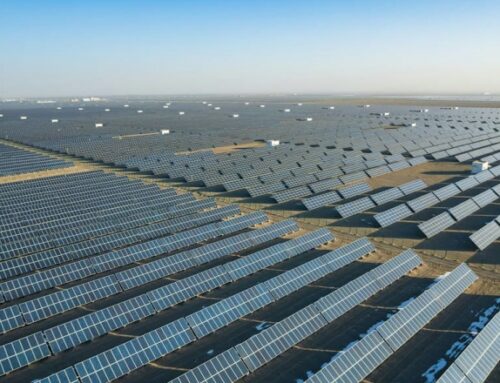Policy POV: Resignations impact federal proposals on the environment
January 7, 2025
It is turning out to be the winter of our discontent. There have been some high-level resignations for the federal government in recent weeks, starting with Deputy Prime Minister and Finance Minister Chrystia Freeland and culminating with yesterday’s resignation of Prime Minister Justin Trudeau. And there’s unfinished business when it comes to environmental policy and climate targets.
But there are some key accomplishments worth noting. Canada’s first comprehensive climate legislation provides long-term goals through the Net Zero Emissions Accountability Act. Workers now have a say in the green economy through the Sustainable Jobs Act. Canada’s first National Adaptation Strategy strengthens communities and provides greater resilience. These are just a few of the key initiatives the Liberal Party managed to accomplish under Trudeau’s leadership.
According to Caroline Brouillette, executive director of Climate Action Network Canada, “Justin Trudeau has accomplished more on climate policy than any other Canadian Prime Minister so far.” She adds that the regulations Trudeau introduced to limit pollution from the oil and gas sector must be finalized before the next election.
Most media coverage of the Government of Canada’s 2024 Fall Economic Statement was overtaken by news of the resignation of Freeland on December 16, 2024. That’s a pity because the Statement included a number of proposals which help us understand the direction of the federal government, civil servants as well as politicians, and shines something of a light on which industries and sectors are among the most effective lobbyists in Ottawa.
Following the prorogation of Parliament due to the resignation of Trudeau the next Federal budget will likely be introduced in the Spring or early Fall of this year. Many of the environment-related policy proposals in the Fall Economic Statement are not particularly partisan and may well be reintroduced by whichever party has the opportunity to do so.
The following are some of the environmental policies proposed in the 2024 Fall Economic Statement that may have some traction in the corridors of power in Ottawa during the months or years ahead:
- Putting tariffs on the imports of goods from China that are produced without robust labour and environmental standards.
- Building a regulatory framework that yields timely and predictable decisions, aligns economic and environmental priorities, and meaningfully engages with Indigenous communities.
- Amending the to respond to the October 2023 Supreme Court of Canada decision declaring part of the Act to be unconstitutional.
- Setting new targets of five years to complete federal impact assessment and permitting processes, and two years or less for permitting of nondesignated projects.
- Releasing a comprehensive action plan to modernize and expedite federal regulatory and permitting processes.
- Issuing a Cabinet Directive, that will help get clean growth projects built faster by driving public service culture change and removing duplication and red tape.
- Launching a Federal Permitting Coordinator in the Privy Council Office=s Clean Growth Office to oversee permitting activities, reduce duplication, and provide project proponents with greater support to navigate federal processes.
- Amending the Physical Activities Regulations (the Project List, which sets out the types of projects that are subject to the Impact Assessment Act) to advance the principle of one project, one review [for example, by having the Canadian Nuclear Safety Commission’s process apply to certain brownfield nuclear projects, as opposed to also requiring a federal impact assessment. Canada is making significant strides in nuclear energy investment and development with publicly announced plans for new nuclear reactors across the country.
- Ensuring that critical mineral market participants recognize the value of critical minerals produced responsibly, with due regard for high environmental standards and labour practices.
- Verifying that foreign businesses that export into Canada pay for their carbon emissions through the Border Carbon Adjustments.
- Continuing to work with key emissions intensive trade exposed sectors to assess the domestic emissions intensity of their Canadian production.
- Proceeding with two green bond transactions in fiscal year 2024‑25 to meet the planned $4 billion of issuance outlined in Budget 2024.
- Implementing a refundable electric vehicle (EV) Supply Chain investment tax credit equal to 10 per cent of the capital cost of eligible building property used in qualifying EV supply chain segments.
- Increasing the number of eligible projects under the Clean Hydrogen investment tax credit to include projects that produce hydrogen from the pyrolysis of natural gas and other eligible hydrocarbons (i.e., methane pyrolysis).
- Expanding eligibility for an enhanced Scientific Research and Experimental Development (SR&ED) tax incentive program for taxation years that begin on or after the December 16, 2024.
More details of these and many other initiatives less specifically directed towards the environment may be found in the extensive 2024 Fall Economic Statement available here.
Colin Isaacs is a chemist with practical experience in administration, municipal council, the Ontario Legislature, a major environmental group, and, for the past three decades, as an adviser to business and government. He is one of the pioneers in promoting the concept of sustainable development for business in Canada and has written extensively on the topic in the popular press and for environment and business platforms.
Featured image credit: Getty Images
Search
RECENT PRESS RELEASES
Related Post



